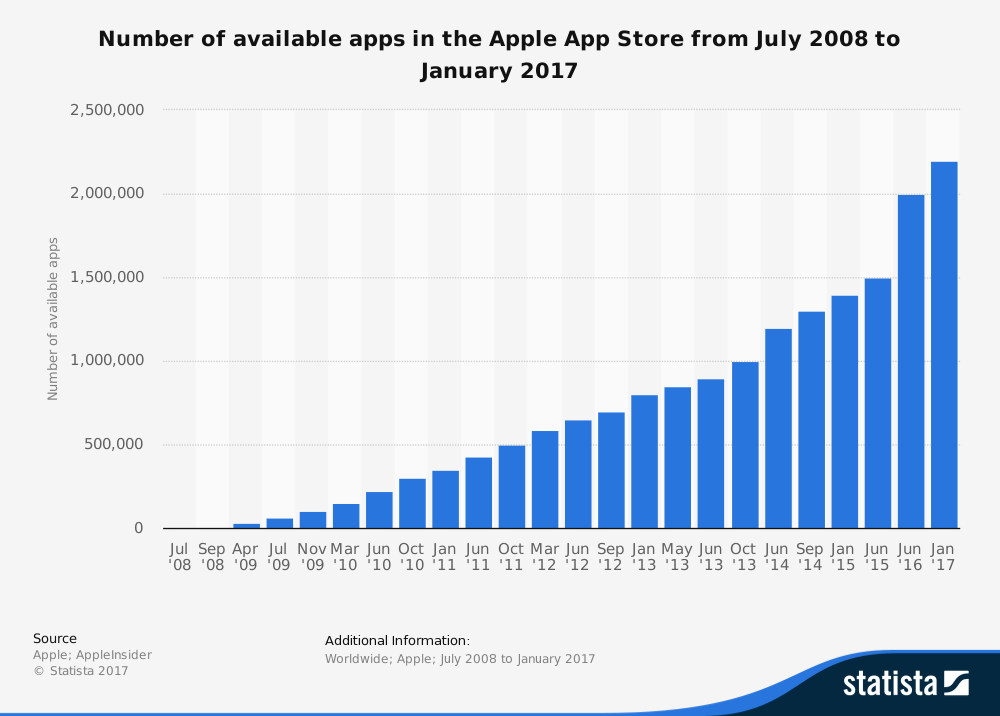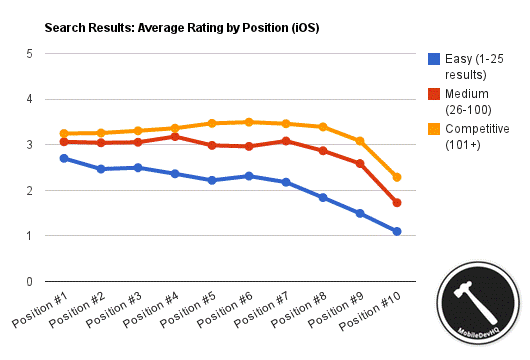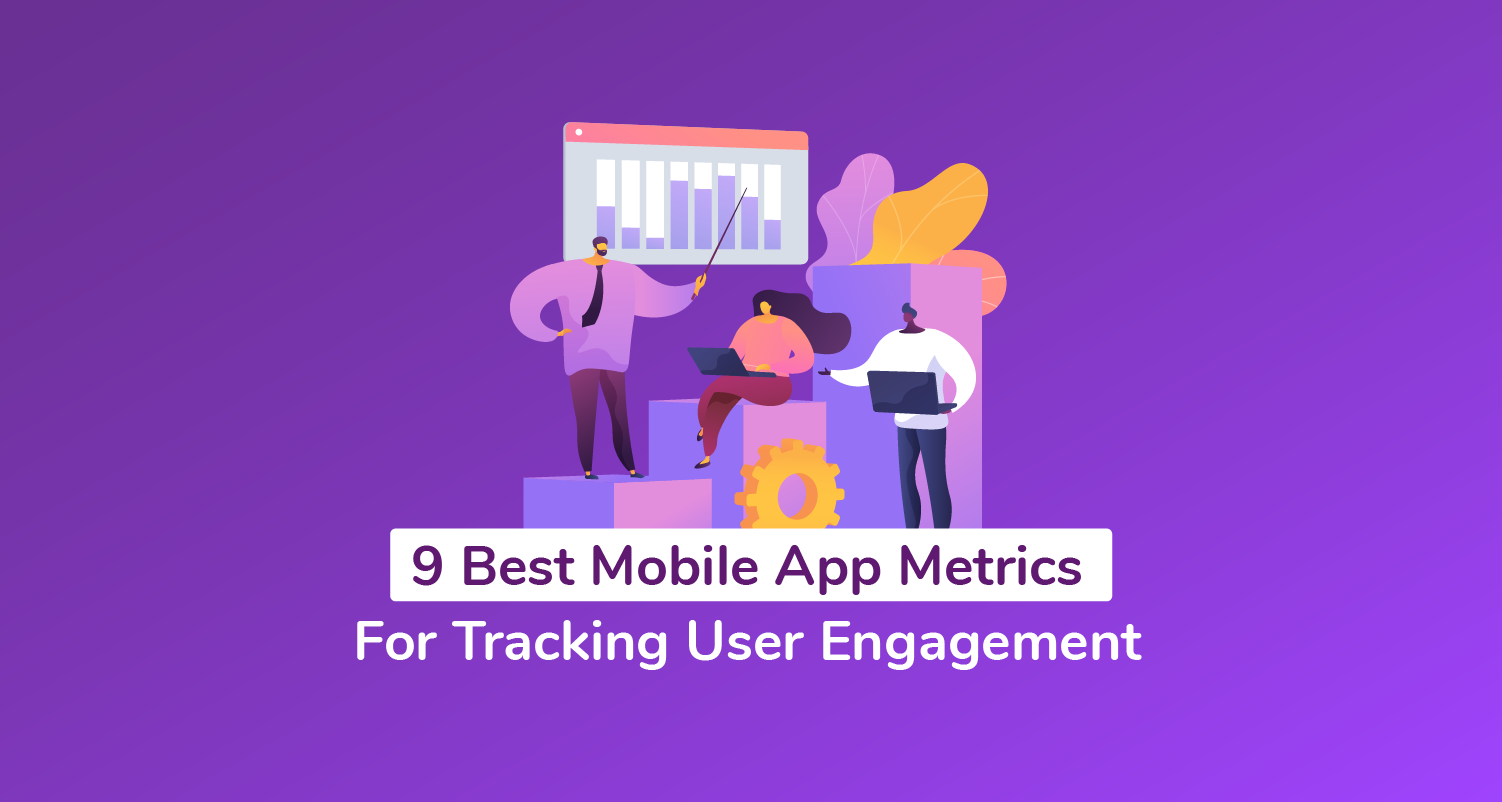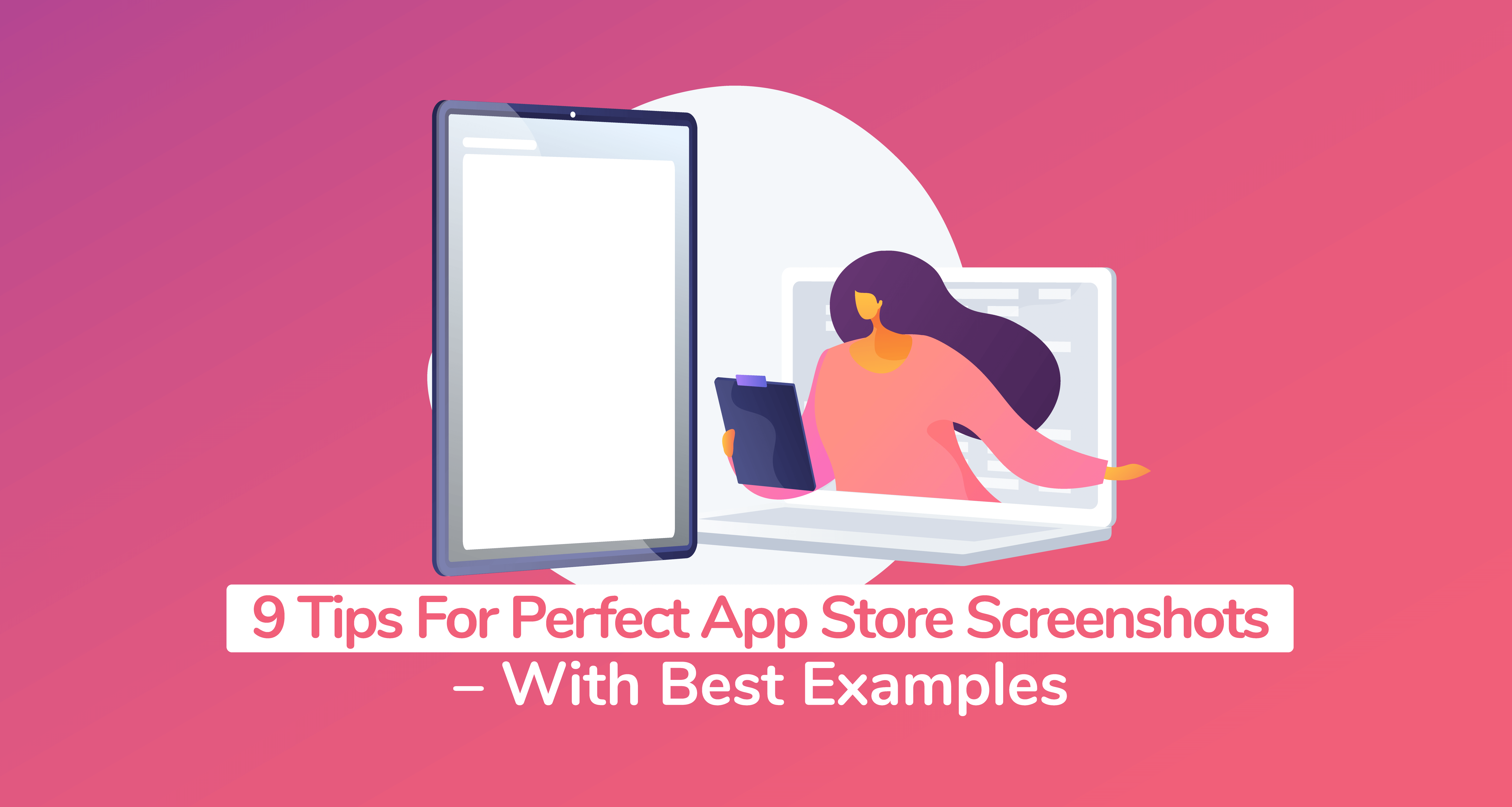
Top 5 ASO Strategy Myths Debunked

While most app publishers agree that App Store Optimization is indeed the king of mobile app marketing, there‘s still a lot of confusion surrounding ASO strategy and techniques.
Some believe that you can use the same ASO strategy on the Apple App Store and Google Play Store. Others argue that keyword optimization is the most important aspect of your ASO strategy.
You might have also heard that Apple Search Ads happen to influence your app ranking. And then there are some who argue that you don’t really need to invest in a specialized ASO tool or app marketing service to secure the best keyword ranking.
Does any of that sound familiar?
Well, the fact is, some of that is true – while others are just false beliefs that continue to gain traction among app marketers, app developers, app publishers, and app owners.
So, to help you separate the wheat from the chaff, this article highlights and debunks 5 of the most common ASO strategy myths today.
You get to know the truth about:
- Your app ranking chances when you proceed to publish your mobile app on the App Store without implementing ASO.
- Optimizing your app title according to popular App Store search keywords.
- The relevance of app ratings, app reviews, app screenshots, app icons, app titles, and app keywords to your app visibility in the App Store.
- The similarities and differences between Google Play Store’s and Apple App Store’s ASO strategies.
- The contribution of mobile app marketing agencies and ASO tools to your ASO strategy.
For the sake of clarity, though, let’s begin with the basics. What the heck is App Store Optimization in the first place? And why is that special to app marketers?
What is App Store Optimization?
Simply put, app store optimization is to the App Store what SEO is to Google. It’s essentially the process of combining multiple tactics that are relevant to app ranking, in a bid to boost an app’s overall position in the search results.
You see, the thing is, the Apple App Store currently hosts 2 million apps, and they are not just sitting, waiting to be stumbled upon. The bulk of app owners, app publishers, app marketers, and app developers are leveraging a wide range of mobile app marketing methods to scramble for a chunk of the 300 billion downloads per year.
While various prelaunch app marketing and post-launch marketing methods have different efficacy levels, one thing is certain- App Store Optimization is king.
Your overall approach to ASO substantially determines the number of people who discover, and ultimately download your apps.
Now, for an effective App Store optimization strategy, you need to have a comprehensive understanding of your potential users. In addition to their App Store search patterns, you need to know exactly what they look out for in their organic installs, and what drives user acquisition. Then most importantly, you have to develop an in-depth knowledge of the App Store and its app ranking algorithms.
How the App Store Algorithm Works
App Store ranking is a combination of two principal algorithms- app category and keyword ranking. The app category algorithm is the simplest and relies upon, among other things, overall app downloads and gross app revenue.
Unfortunately, the precise ratio between app ranking and the volume of app downloads and app revenue is unknown. However, based on our experience in ASO, we can confidently conclude that calculations used by Apple vary between categories.
For optimal user experience, category ranking is further compounded by country ranking. So, apps are first ranked by their categories, before ultimately being listed according to their popularity in the country.
Keyword ranking algorithms, on the other hand, establish an app’s ranking according to its relevance to chosen keywords. And yes, in case you’re wondering, it turns out that even the most popular apps require proper keyword optimization to remain at the top of the App Store search results.
Sounds simple? Sadly, it’s not. Keyword relevance is not as straightforward as it may seem.
Believe it not, the App Store assigns your app a keyword rank score that consistently shifts with each user interaction. Even something as simple as watching an app demo video affects your total score.
Make no mistake about it, though. User interactions do not necessarily guarantee an improved score. Only positive app engagements like downloading and purchasing translate to better scores. Negative engagements, on the other hand – like impressions without corresponding app installs – will gradually pull your score down.
That’s why, as a matter of fact, it’s always advisable to center your app optimization not only on your keyword field, but also on the accompanying app icon, app screenshot, and app preview video. They collectively enhance your mobile app’s positive engagement.
In the end, everything that you include on your App Store page will contribute one way or another to your app’s ranking. And since each keyword has its distinct score, it’s possible to rank well on one keyword, and poorly on another.
That said, let’s now proceed to the topic of the day – debunking the 5 most common App Store Optimization myths.
Top 5 ASO Strategy Myths Debunked
#1: Organic User Acquisition is Possible Without App Store Optimization
Building a mobile app, on average, takes 4-5 months. Now, take a minute and think about the most complicated mobile app you’ve ever come across. One that you assume probably took years to create. If what you have in mind is bad enough, getting your mobile app discovered can become an even worse nightmare if you don’t know the ropes around App Store Optimization.
According to research conducted by Forrester, 63% of users discover mobile apps on the App Store through organic searches.
But, as it turns out, there are still many people – including amateur and experienced app developers -who believe that submitting a mobile app to the App Store should be enough, and that potential users will simply stumble upon their apps the same way new items are discovered on supermarket shelves.

Well, one thing we have to admit is that this ASO myth was actually true at some point. Yes, that’s right – app publishers were surviving without App Store Optimization in 2008, when the App Store had just been introduced as part of the iPhone 3G.
But now, with 2 million mobile apps in the App store and growing, waiting for your app to be discovered without ASO is just as good as forgetting you even had a mobile app in the first place.

Other people argue that while App Store Optimization is relevant, popular apps do not need them at all.
Consider Facebook and Google, for instance. They are two of the most popular digital brands in the world. So much so that pretty much all smartphone users, even in countries that have blocked access to them, recognize Facebook and Google.
Here’s the thing though. Despite their popularity, both Facebook and Google have a team of dedicated professionals exclusively dealing with app promotion. Their job is to offer app marketing services, including App Store Optimization, app localization, etc
So, unless your app is way more popular than Facebook and Google, we strongly advise you to invest immensely in ASO. App Store Optimization is compulsory if you’re seeking to drive user acquisition organically.
#2: Aligning App Name with Popular Search Keywords Improves Ranking
We earlier mentioned that the Apple App Store heavily factors in keywords in its app ranking algorithms. But, while it’s similar to Google Play Store’s ranking algorithm in some ways, the app title/name is not part of the app indexing keywords. So, naming your app “Best Card Game” will not improve your App Store ranking at all. As a matter of fact, it might hurt the app’s visibility.
This is a debate that has existed in the marketing circles for quite a while. And come to think of it, I guess the head of Google Play’s search, Jain, may have fuelled it through an Inside Mobile Apps report– by stating that the app title is the “most important” piece of their app’s metadata.
Although the report exclusively discusses Android apps and Google Play Store’s search algorithm, some app marketers thought they should give the concept a try on the Apple App Store. After all, with the mother of all search engines factoring in the app title, Apple seemed like it would automatically toe the line.
And so, the app marketers decided to apply varying app names and titles on a regular basis, changing them and then mixing things up- in hopes that they would eventually hack the whole App Store ranking system.
But, as we’ve come to establish, changing your app’s name and title could be detrimental to your overall marketing strategy. Loyal users and their corresponding referrals will find it harder to locate your iOS app in the App Store. And that translates to a progressively diminishing user base.
That said, the trick to app title optimization is this – you can go ahead and throw in a couple of relevant keywords, but don’t keyword stuff it. Instead, keep the app name unique, simple, and short.
For instance, “Angry Birds” would rank better than a generic keywords name like “Bird Game”. It even sounds so much more interesting to an App Store user.
#3: App Ranking is Largely Influenced by the Number of App Downloads and App Rating Scores
This is arguably the most popular myth about App Store Optimization. Judging by the level at which both Android and iOS apps are consistently begging users to give them good ratings, you’d think that it’s the most fundamental part of ASO.
In fact – thanks to this misconception, many mobile app developers continue to pay for app ratings and ghost app installs. Unscrupulous marketers are preying on them to make a killing. And business, as it turns out, is still booming.
Now, let’s get one thing clear. We are not refuting the fact that app ratings and app download numbers are essential to ASO. Of course, they are both important elements of app store optimization.
But, they are not as critical as most people assume. If you get your ASO strategy right, you can outrank an excellently-rated competitor. We’ve been able to achieve that on several occasions here at PreApps, after enhancing various partner apps with our App Store optimization services.
Other than that, take a look at this table prepared by researchers, who sampled various mobile apps and then analyzed their app store ranking according to their corresponding rating scores.
In essence, they searched random terms and categorized them into; competitive search terms (101+ results), medium search terms (26-100 results), plus easy search terms (1-12 results).

Interestingly, all the app ratings here are drastically dropping after position 8. And while the ratings of apps lying between positions 1 and 7 appear to be way better than the 8-10 range, they’re still fluctuating downwards and upwards. As such, we can conclude that the app ranking results are not entirely dependent on ratings and number of app downloads.
What’s more, after running the word “easy” through the App Store search tool, the researchers established that the app ranked at number 10 had a rating as low as 1.09.
Now that might be sad for apps with good ratings, but that’s what good App Store Optimization gets you. You may have poor ratings but still, rank comparatively well in both organic search results Apple Search Ads.
#4: You Can Use the Same ASO Strategy on Google Play and App Store
Technically, Google Play Store and Apple’s App Store are both app stores. Plus, the most popular apps on the App Store are equally prominent on Google Play Store – so they must be running pretty much the same app indexing algorithms, right?
Well, to debunk this myth, consider conducting a random search on two of the highest-ranked search engines – Google and Bing. They both crawl through the web to generate results in a matter of microseconds. But, as you’ll come to establish, the search results are never identical. Different ranking and varying sequence.
Now, that’s pretty much the same case with the App Store and Google Play Store. They all run on separate algorithms that prioritize different elements. While Google Play Store considers almost every textual element in keyword indexing, the App Store provides specific keyword fields, and additionally takes into account each app’s gross revenue.
Consequently, while ASO is an effective mobile app marketing strategy on both Google Play Store and the App Store, their individual tactics have different efficacy levels. So, it would be detrimental to engage what you learn about the Google Play Store on the Apple App Store. Even the app descriptions should be formatted differently.
#5: You Don’t Need a Marketing Agency or ASO Tool
To some developers, apps- unlike websites- seem like comparatively small-scale engagements that are not worthy of marketing agencies. After all, what’s so difficult about tweaking a couple of App Store keywords, choosing a unique app name, and taking captivating screenshots of your app?
Fair enough. All those might seem like logical reasons, I must admit. But, here’s the thing about ASO – while learning the basic principles of App Store Optimization is considerably easy, applying them is a different story altogether.
You need an in-depth understanding of the entire App Store ecosystem. And that’s not something you can grasp in a couple of months.
Also, even if you happen to up for the challenge, you might not have sufficient spare time to learn all the ropes.
Developing and submitting an app to the App Store may seem like a relatively simple undertaking at the beginning – but in the end, the amount of subsequent tech support required is immense.
You can bet your app users flag issues as soon as they start making comments through your App Review. Consequently, you’ll be overwhelmed with the whole debugging and retesting processes, which might even grow more demanding with every OS update.
Working with a marketing agency (a good one for that matter) gives you the much-needed space to breathe. You’ll be leaving the App Store Optimization to the experts, while you focus on running and maintaining the app.
Another good thing about it is that your app will get to capitalize on ASO strategies that have been tried and tested. An experienced company like PreApps, for example, has worked on over 3,250 apps- and knows just the right tactics to employ to boost your organic app downloads and app installs tenfold.
What’s more, we won’t be limiting you to App Store Optimization. Our mobile app marketing services combine pre-launch campaigns (like app press release) and post-launch strategies (like ASO, viral videos, influencer marketing, social media marketing, and paid advertising).
Conclusion
To recap:
- By 2025, more people will have mobile phones than electricity in their homes.
- The app economy has grown astronomically and is expected to hit $6.3 trillion in 2025
- The App Store currently hosts 2 million apps and the bulk of app owners are leveraging a wide range of marketing methods to scramble for a chunk of the 300 billion downloads per year.
- ASO is the process of combining multiple tactics that are relevant to app ranking, in a bid to boost an app’s overall position in the search results.
- App Store ranking is a combination of two principal algorithms- category and keyword ranking.
- The app category algorithm is the simplest and relies upon overall downloads and gross revenue, in addition to other factors.
- Keyword ranking algorithms establish an app’s ranking according to its relevance to chosen keywords.
- According to research conducted by Forrester, 63% of users discover apps on the App Store through organic searches.
- With 2 million apps and growing, waiting for your app to be discovered without ASO is just as good as forgetting you even had an app in the first place.
- A good app name may contain the keyword, but keep it unique, simple, and short.
- Ratings and downloads are essential in ASO, but are not as critical as most people assume.
- While Google Play Store considers almost every textual element in keyword indexing, the App Store provides specific keyword fields, and additionally considers app gross revenue.
- Working with a marketing agency grants you the privilege of capitalizing on strategies that have been tried and tested.
Feel free to share other myths you’ve heard about app store optimization. And, as always, you can go ahead and get in touch with us for expert mobile app marketing.
Newsletter
Don’t miss a thing! Sign up to receive daily news
Subscribe Newsletter









